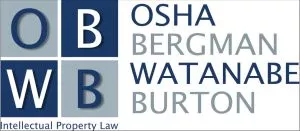- within Intellectual Property topic(s)
- in United States
- with readers working within the Pharmaceuticals & BioTech and Law Firm industries
In Hachette Book Group, Inc. et al. v. Internet Archive1, the Second Circuit concluded that it is not "fair use" for a nonprofit organization to scan copyright-protected print books in their entirety, and distribute those digital copies online, in full, for free, subject to a one-to-one owned-to-loaned ratio between its print copies and the digital copies it makes available at any given time, all without authorization from the copyright-holding publishers or authors.
Internet Archive ("IA") is a nonprofit whose stated mission "is to provide universal access to all knowledge." IA works with libraries, museums, universities, and the public to preserve and offer free online access to texts, audio, moving images, software, and other cultural artifacts through its "Free Digital Library." Other than a period in 2020, IA has maintained a one-to-one owned-to-loaned ratio for its digital books, meaning it only allows lending out as many copies as it owned in print. IA refers to this practice as "Controlled Digital Lending" or "CDL," which it likens to traditional library lending of print books.
On June 1, 2020, Publishers (Hachette Book Group, Inc., HarperCollins Publishers LLC, John Wiley & Sons, Inc., and Penguin Random House LLC) sued IA and five Doe defendants in the Southern District of New York, alleging that IA infringed their copyrights in 127 books (the "Works" or the "Works in Suit"). On March 24, 2023, the district court granted summary judgment to Publishers, concluding that Publishers established the elements of copyright infringement and that IA's infringement was not excused by the defense of fair use.2
In evaluating the four statutory fair use factors set forth in 17 U.S.C. § 107 of the Copyright Act, the district court found that: (1) IA's use of the Works in Suit is (a) non-transformative because IA reproduces the Works in full and its digital copies serve the same purpose as the originals; and (b) commercial because, despite IA's nonprofit status, it exploits the Works by soliciting donations on its website and taking a cut of the proceeds when users buy a physical book from Better World Books (BWB) using a link embedded on IA's website; (2) the Works are original fiction and nonfiction books "close to the core of intended copyright protection"; (3) IA copies the books wholesale; and (4) IA "brings to the marketplace a competing substitute" for library eBook licenses, "usurping a market that properly belongs to the copyright-holder."
The United States Court of Appeals for the Second Circuit reviewed the district court's analysis of the four fair use factors.
1. The purpose and character of the use
A. Transformativeness
IA argued that its Free Digital Library is transformative because it uses technology "to make lending more convenient and efficient" and "deliver[s] the work only to one already entitled to view it―the one person borrowing the book at a time." IA derives the argument from the case of Sony Corp. of America v. Universal City Studio, Inc.3 In Sony, the defendant manufactured and sold home video tape recorders that allowed users to record TV programs broadcast at set times over the airwaves so they could watch them later. The Supreme Court's ruling established fair use in this context because "time-shifting for private home use . . . [is] a noncommercial, nonprofit activity" that "merely enables a viewer to see such a work which [they] had [already] been invited to witness in its entirety free of charge."
However, the Second Circuit agreed that IA's use of the books was not transformative. The court noted that "the "time-shifting" permitted by the defendant's tape recorders in Sony was a unique efficiency not widely available at the time, and certainly not offered by the plaintiff-television producer. The court further noted that "by contrast, IA's Free Digital Library offers few efficiencies beyond those already offered by Publishers' own eBooks" and "IA's Free Digital Library does not 'improv[e] the efficiency of delivering content' without unreasonably encroaching on the rights of the copyright holder; it offers the same efficiencies as Publishers' derivative works while greatly impinging on their exclusive right to prepare those works."
B. Commercial use
The Second Circuit disagreed with the district court's finding that IA's use of the Works in Suit is commercial. As noted above, the district court found that "despite IA's nonprofit status, IA exploits the Works by soliciting donations on its website and taking a cut of the proceeds..." However, the court found that "IA must solicit some funds to keep the lights on: its website includes a link to "Donate to IA", "IA does not profit directly from its Free Digital Library" and "Any link between the funds IA receives from its partnership with BWB and its use of the Works is too attenuated for us to characterize the use as commercial on that basis."
The court concluded that although IA's use of the Works is non-commercial in nature, transformativeness remains the "central" focus of the first factor and thus IA's use of the Works is not transformative.
2. The nature of the copyrighted works
The court of appeals agreed with the district court's finding and found that "the Works in Suit are "of the type that the copyright laws value and seek to protect."
3. The amount and substantiality of the use
The appellate court also agreed with the district court's finding and found that "IA makes unauthorized digital copies of the Works and reveals those copies to the public in their entirety."
4. The effect of the use on the potential market for or value of the works
IA argued that its Free Digital Library causes no harm to Publishers' markets for the Works because IA's lending "offers a distinct service" from Publishers' eBooks, not a substitute; and "all available evidence shows that IA's lending caused no harm at all" to Publishers' markets for the Works.
In contrast, however, the Second Circuit agreed with the district court and explained that "not only is IA's Free Digital Library likely to serve as a substitute for the originals, the undisputed evidence suggests it is intended to achieve that exact result. IA copies the Works in full and makes those copies available to the public in their entirety. It does not do this to achieve a transformative secondary purpose, but to supplant the originals."
Therefore, the Second Circuit affirmed the district court's decision. The court noted that allowing for widescale copying deprives creators of compensation and diminishes the incentive to produce new works.
Footnotes
1. Hachette Book Group Inc. et al. v. Internet Archive, case number 23-1260 (2d Cir. Sept. 4, 2024).
2. Hachette Book Group, Inc. v. Internet Archive, 664 F. Supp. 3d 370, 378, 391 (S.D.N.Y. 2023).
3. Sony Corp. of America v. Universal City Studios, Inc., 464 U.S. 417, 449 (1984).
The content of this article is intended to provide a general guide to the subject matter. Specialist advice should be sought about your specific circumstances.



